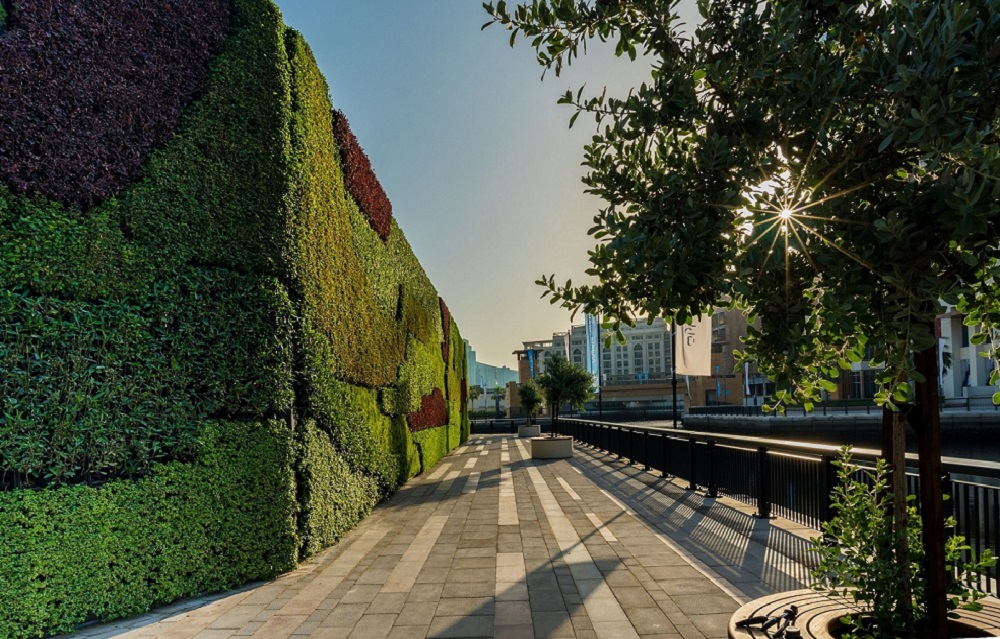Dubai Properties has unveiled what it calls the Middle East’s largest living green wall at Dubai Wharf as part of its initiative to promote sustainable living.
An announcement from the real estate major said the structure, located in Culture Village overlooking the Dubai Creek, is a vertical garden that spans 1,260 square metres and features over 80,000 plants forming a leaf canopy area equivalent to around 200 trees, capable of offsetting an estimated 4.4 tonnes of carbon dioxide (CO2) annually.
The wall is 210m in length and rises 6m high, and is built upon the principle that greenery within communities has a calming effect and encourages an outdoor lifestyle. According to Dubai Properties, it sought to create a microclimate that enhances the aesthetic appeal of Dubai Wharf and the well-being of visitors and residents.
Developed by landscaping experts Gover Horticulture, the Dubai Wharf Green Wall is made using geotextile grow bags filled with peat substrates enriched with nitrogen, phosphorus and potassium (NPK). This allows for better root growth, irrigation and drainage in the UAE climate that can often get quite harsh during the long summers.
Raed Al Nuaimi, Group CEO, Dubai Properties, said: “At Dubai Properties, we design our projects with a focus on the communities that will inhabit them. As part of this priority, we consciously integrate elements that are not only environmentally sustainable but also make our residents happy. The Dubai Wharf Green Wall is a prime example of our holistic approach to well-being in our communities, as it instils a sense of serenity throughout the neighbourhood while supporting the local ecosystem and beautifying the surroundings. In addition, having a new Dubai landmark at their doorstep is a matter of pride for the residents of this community.”
Green walls are a relatively new concept worldwide, with more than 9o% installed after 2007. Found mostly in urban environments, where the plants help reduce the overall temperature of the buildings, many of the best-known green walls are located in public places, such as airports and shopping malls.

